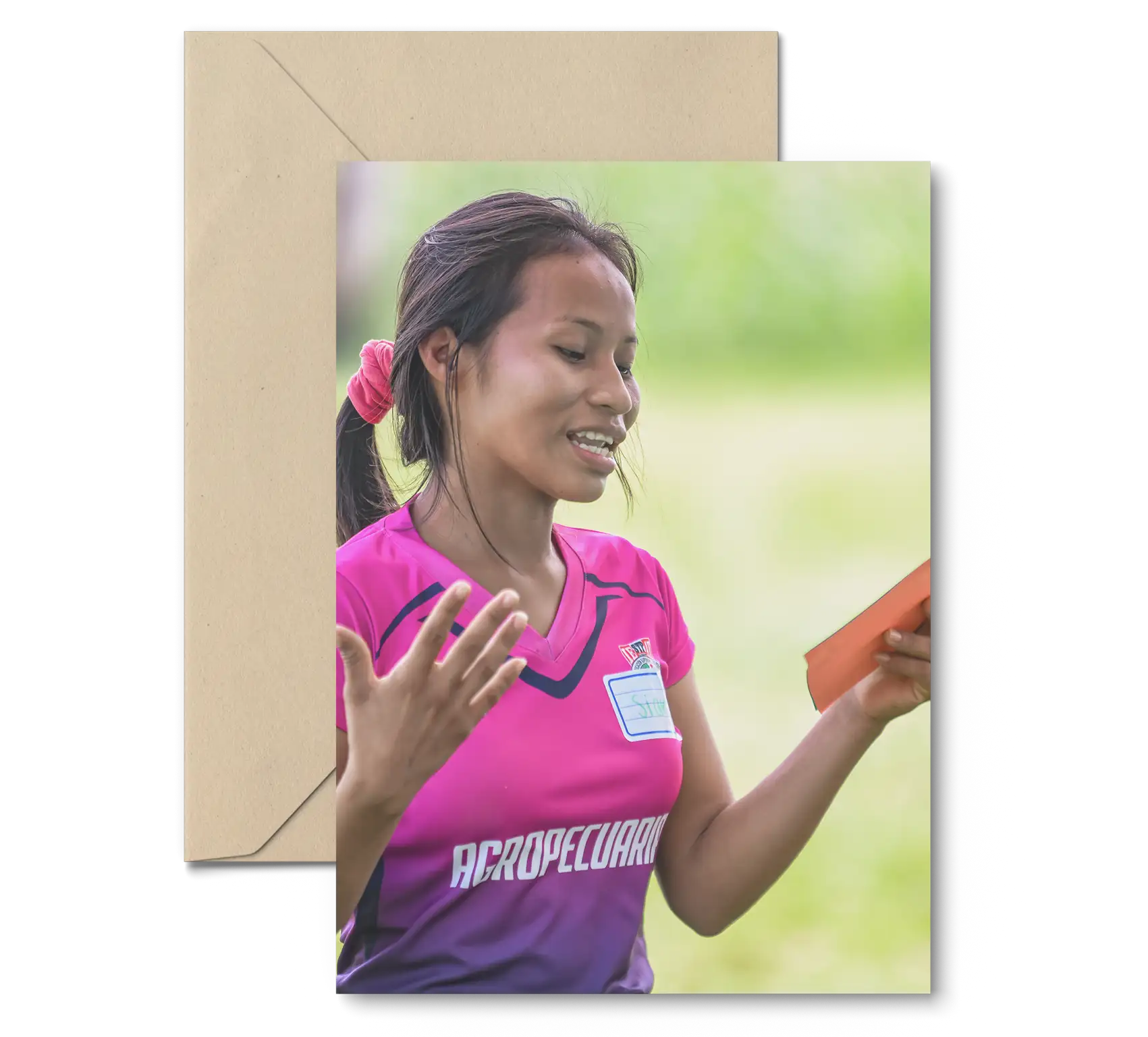
In 2017, the Our Stories project used digital narratives to empower communities by giving them the tools to tell their own stories. Participants shared experiences on critical issues such as teenage pregnancy, lack of access to maternal health care, the importance of newborn check-ups, and gender-based violence, making local problems visible and fostering community dialogue.
In 2022, the Hear My Voice project took this approach further by documenting the challenges and solutions designed by Community Health Workers (CHWs) during the COVID-19 pandemic. The stories, narrated by the CHWs themselves and made visible in photo galleries in Lima and Loreto, highlighted their role as a bridge between communities and health services, helping them develop trust and communication skills critical to their daily work.
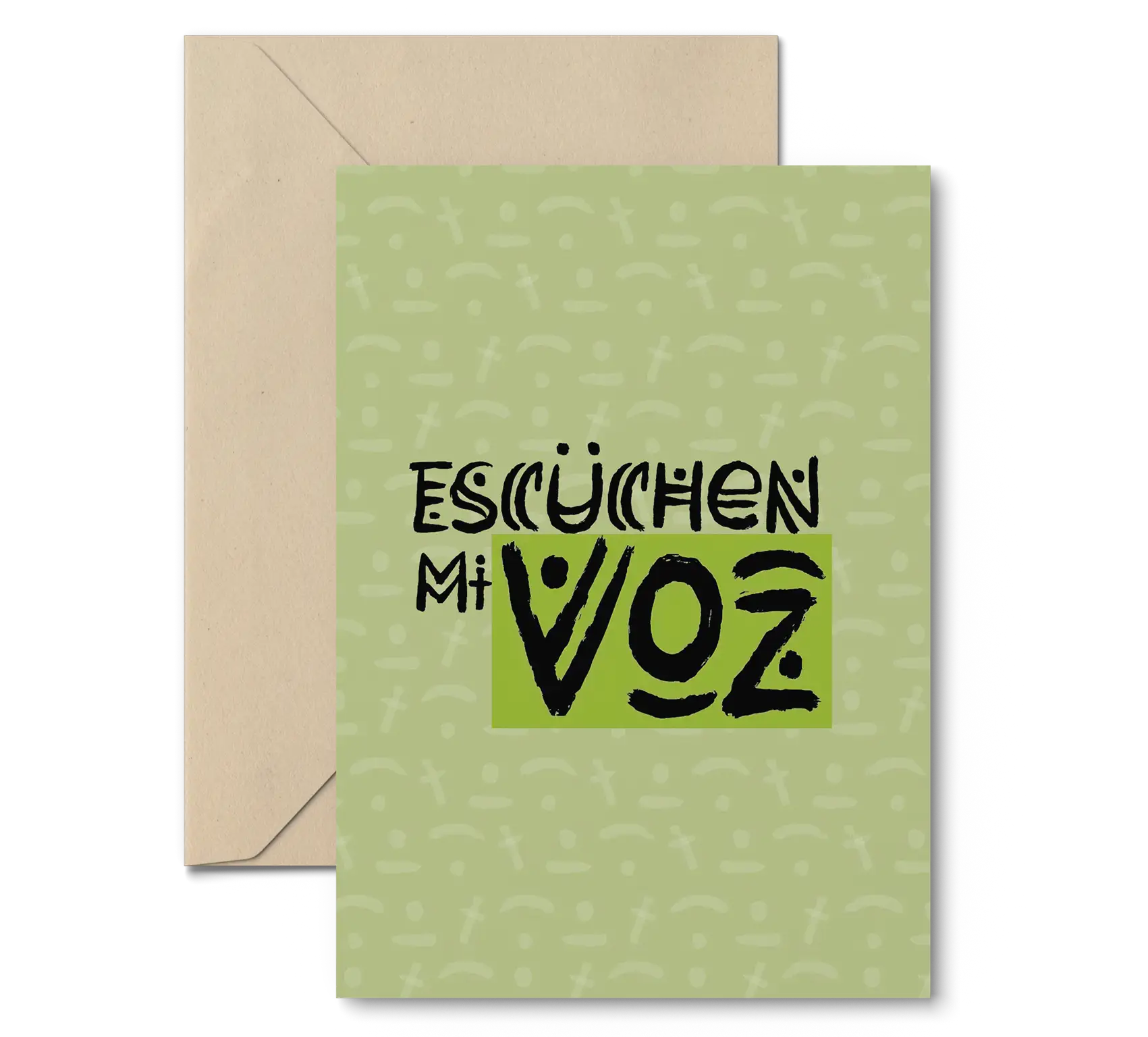
In July 2024, Mamás del Río organized an empowerment workshop specifically designed to strengthen the capacities of ACS in Loreto. This event focused on providing practical tools to help them lead and organize effectively in their communities and in front of other actors.
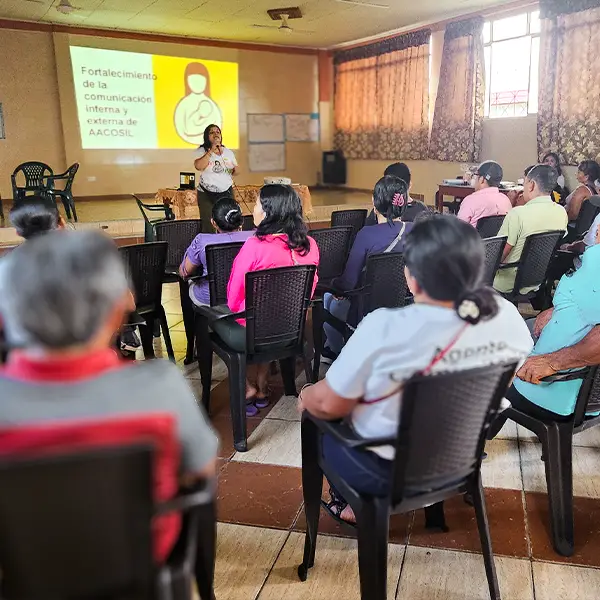
The workshop, which was held by health workers, health personnel, communicators, lawyers, sociologists and community leaders, addressed key skills such as leadership, conflict management and internal and external communication. This workshop also disseminated the importance of coordination with institutional actors and grassroots organizations and knowledge about human rights. During the activities, the CHW practiced techniques to interact with health authorities, the media, the press and organizations with the aim of defending the needs of their communities. They also participated in group activities that fostered teamwork and self-confidence.
The workshop also brought about an important reflection on gender equality, taking into account that it was led exclusively by professional women. The reaction that was generated was particularly striking since, in a predominantly patriarchal environment, it helped to demystify traditional roles and gave rise to comments such as that of a male participant: “I never imagined receiving such important teachings only from women and all so capable” and those of a female participant who told us: “Being a woman and being a leader is not easy. It is very important to have a voice and fight to improve life in our communities.”
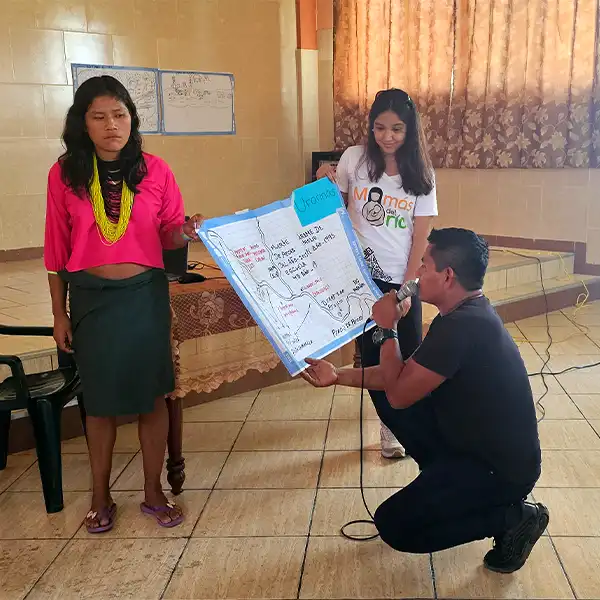
A key result of Mamás del Río’s efforts has been the creation by the ACS themselves who worked for almost a decade on our program of the Association of Community Agents of Intercultural Health of Loreto (AACOSIL). This organization, which brings together indigenous ACS from various communities in Loreto, mainly from the Kukama-Kukamiria ethnic group, was formed to strengthen their representation and ensure that their voices are heard at the regional and national levels.
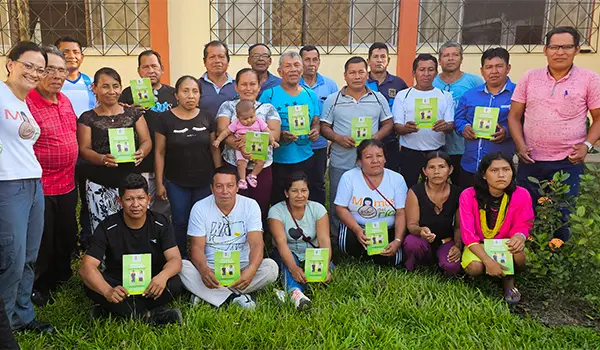
AACOSIL has become a space for articulation where CHW can share experiences, identify common problems and propose collective solutions. In addition, the association actively works to establish alliances with other indigenous groups in the Amazon, with community-based organizations, with government institutions and civil society organizations, ensuring continued support for its members.
The design of the AACOSIL logo, created with input from the CHWs themselves, reflects their identity and values: strength, commitment and connection with their communities. This process not only helped consolidate their image, but also strengthen the sense of belonging among its members.
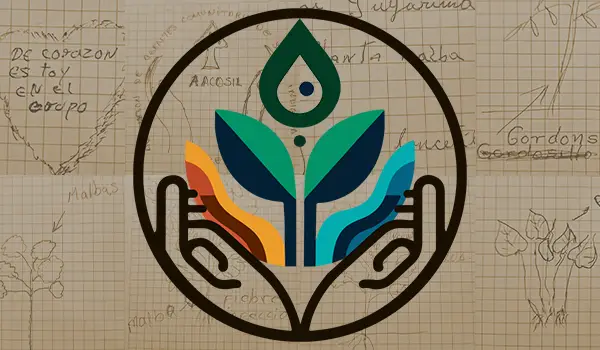
The growth of the CHWs is a testament to the lasting impact of the empowerment and ongoing training that Mamás del Río promotes. Stories like those of Regner Curitima and Celia Fasabi are living examples of leadership and development.
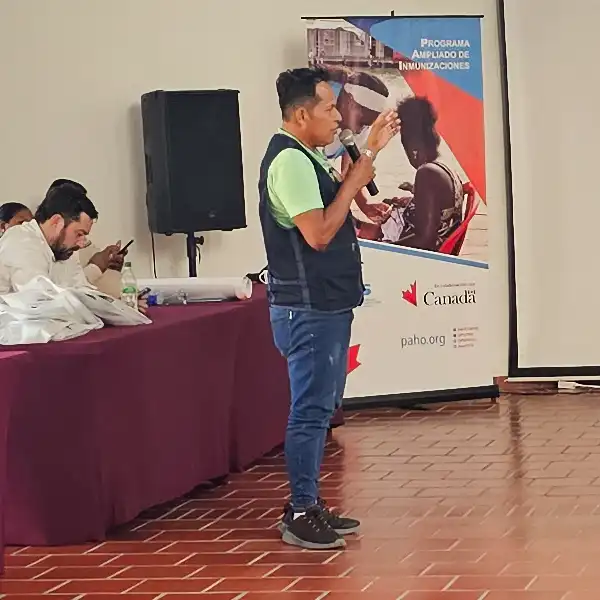
Thanks to the skills acquired from his work as an CHWs and his dedication, Regner Curitima has taken on key roles as part of the Mamás del Río team at highly relevant events. He was a speaker in Leticia, Colombia, where he shared his experience with community leaders from other countries, and participated as a co-facilitator in training sessions for Mamás de la Frontera. His story reflects how empowerment can turn ACS into role models and trainers within their own territories.
On the other hand, Celia Fasabi, CHW and leader of the Huaynakana organization, has demonstrated an exceptional commitment to the well-being of her community. Celia not only plays an active role as CHW, but also leads organizational processes that strengthen the voice of indigenous women in Loreto. Her leadership has been key to promoting dialogue on health and rights issues, demonstrating how empowerment can transform CHWs into sustainable agents of change.
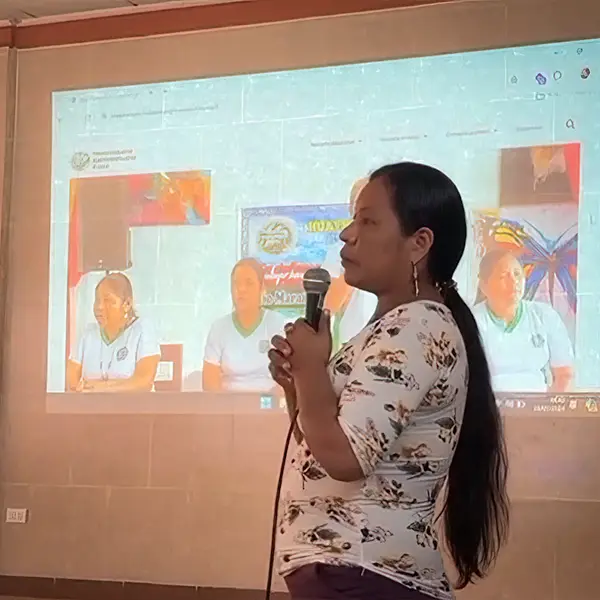
©2024. Made with (❤︎) in Yachayninchik